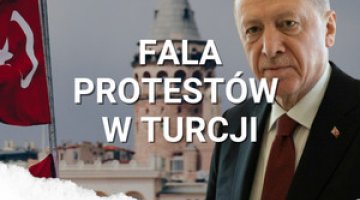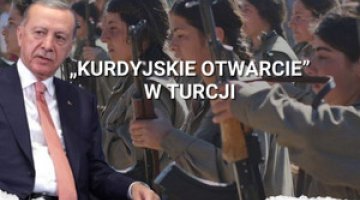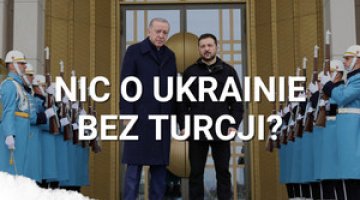An escalation in Turkish-US tensions in the context of the PKK
On 14February the Turkish Armed Forces reported that they had found the bodies of 13 prisoners of war in the Gara region in northern Iraq, and that they had been murdered by the Kurdistan Workers’ Party (PKK) which had been controlling this area. The prisoners of war, among them military personnel and military police and police officers, were captured in 2015 in Turkey. The bodies were discovered during an operation aimed at removing Kurdish guerrilla militants from the border area. The murders scandalised the Turkish government and public opinion. Representatives of the Turkish Armed Forces suggested a larger-scale coordinated armed forces operation be launched in Iraq (preliminary talks were held with Iraq on the issue). The US State Department offered its condolences. Turkey, however, did not in fact accept them. This was demonstrated by President Recep Tayyip Erdoğan’s robust statement in which he attributed the co-responsibility for the massacre to the US, referring to its cooperation with the People’s Protection Units (YPG) which are a Syrian affiliate of the PKK.
Commentary
- The present phase of the Turkish-Kurdish conflict started in 2015 with the successes of Syrian PKK structures in the war against Islamic State (the outcome of cooperation with the US which resulted in the establishment of the Kurdish para-state in Syria), the rise of the Peoples’ Democratic Party (HDP) and its radicalisation under the PKK’s influence as well as the rebellion in south-eastern Turkey which was violently quelled by Turkish forces. Since Turkey regarded the PKK activity in Syria as the source of the problems, it ran two large-scale military operations in northern Syria in 2016-2019, took the areas which are adjacent to Turkey’s southern border, and has maintained control of them to date. Turkey also performs regular air attacks and raids in northern Iraq, where for three decades the main PKK bastion has been located in the Qandil Mountains (these operations are met with continuous objection from Iraq and a mixed reaction from Iraqi Kurds). The last operation during which the bodies of the prisoners of war were found may lead to Turkey becoming increasingly determined and it seeking to force the Iraqi government to consent to a large-scale military operation, similar to previous actions taken in Syria. In the wider context, it has provided Turkey with a pretext to engage in a tough game with the US which could lead to the possible removal of the US umbrella from above the Kurds affiliated to the PKK in Syria and Iraq.
- At the domestic level, the murder of the prisoners of war may lead to Turkey banning the pro-Kurdish HDP. The party’s presence on the Turkish political scene poses a serious problem to the Justice and Development Party (AKP) in the area of governing the country. Firstly, the HDP is widely supported in the areas with the Kurdish majority (the party won over 6 million votes in the last election). Secondly, the HDP calls for a radical decentralisation of the state, and in the past it formed alternative administration structures. In Turkey, where the state unity and indivisibility, as well as its centralist character, are seen as axioms, this sort of political platform (resulting directly from the PKK’s ideology but also informal links with the party) leads to the political isolation of a party that champions it, as well as repression against it. The majority of the HDP’s highest-ranking leaders are currently held in prison and the local HDP government officials are being replaced by trustees appointed by the central government. In the face of mounting internal problems (such as the deteriorating economic situation and stark social polarisation) it seems fairly likely that the HDP will be banned (the opposition may also back this). AKP representatives have previously raised this issue and the coalition Nationalist Movement Party (MHP) is placing the government under increasing pressure regarding this matter. Mass arrests of HDP members and people affiliated with it are a sign of the ultimate settling of this matter; over 700 people were arrested in a single day of 15 February.
- The revealed murder of the Turkish prisoners of war has provided Turkey an opportunity to take part in a game in which it will seek to solve at least one contentious issue in its relations with the US. Erdoğan’s tough rhetoric stems from a sense of having the moral high ground, and constitutes an attempt to launch talks with the US from a position of strength (which is rather novel in the face of Ankara’s conciliatory gestures made towards the new US administration). This negotiation strategy assumes that a uniform internal front will be formed in Turkey’s policy towards the US (it remains doubtful whether any opposition party, apart from the HDP, would criticise the Turkish government’s tough position on the US). Above all, it requires putting other issues which are contributing to Turkish-US tensions on the line. This approach is exemplified by Turkey purchasing S-400 anti-aircraft weapon systems from Russia, which eventually led to US sanctions imposed on Turkey, and the Joe Biden administration pushing the Turkish government to respect democratic standards and human rights. It remains an open question whether Turkey’s stance in its relations with the US will prove effective. Statements from the US State Department and from the Secretary of State, Anthony Blinken, himself, signal that finding a solution will not be easy. In their statements, the US State Department and Blinken condemned the PKK (only after Turkey’s tough response to their first statement which did not determine that the Kurdish guerilla forces were the culprit) but also declared their firm position on the above mentioned matters which the Biden administration sees as key issues.




